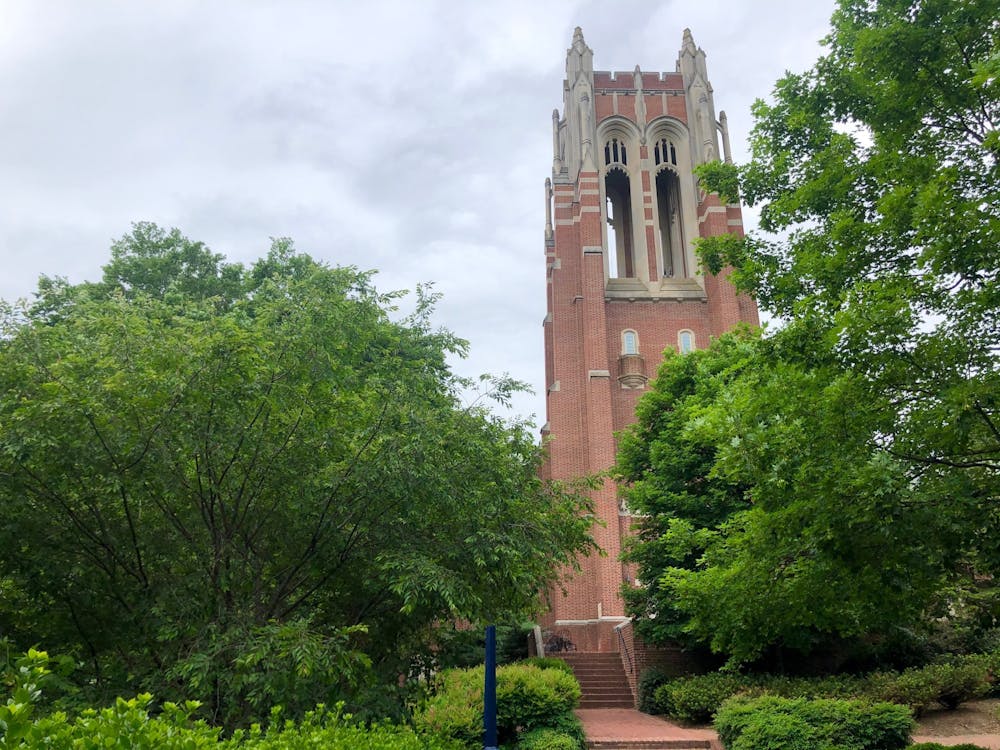More than 50 professors in the School of Arts and Sciences signed a letter demanding more teaching flexibility for the fall semester, which was sent in an email to the University of Richmond administration on June 24.
The letter criticized UR’s original plan for the fall semester, which restricted online teaching only to professors who fall into the Centers for Disease Control and Prevention’s high-risk category, according to the letter, which was shared with The Collegian by English professor Elisabeth Gruner, who signed and helped write the letter.
According to the letter, UR’s strategic plan is centered on well-being and strove to create a community where all individuals are valued and respected, yet UR's plan for the fall 2020 semester presented a default option of in-person teaching with exemptions considered on a case-by-case basis.
Letter signed by more than 50 professors in the School of Arts and Sciences requesting flexibility for remote learning for the fall semester, which was sent in an email to the UR administration on June 24. Click on the image above to read the full, five-page letter.
The letter additionally asked for five policies to be implemented in the coming year.
The first policy called for deans, chairs and supervisors to engage one-on-one with individual employees who identify as a caregiver in order to determine their perceived needs and requirements, according to the document.
The UR administration should be clear that there are no potential negative consequences for articulating needs and requirements, according to the second policy.
The third policy said that working caregivers should not be required to attend the campus in person in the absence of employer-funded safe, socially-distant childcare or care, according to letter.
The fourth said that working parents and caregivers should be invited to contribute to the scheduling of class sessions and service meetings. Working parents and caregivers should not be required to regularly teach synchronously, or to deliver a significant quantity of synchronous teaching, according to the letter.
The fifth policy said that many working parents and caregivers would need to work at unsociable hours and weekends to juggle care responsibilities and work, as working these "second shift" hours may be the only way for some to complete their work for UR, according to the letter.
“I felt [the initial decision] was a morally wrong decision to try to force everyone into a classroom except those deemed high risk from the CDC,” said mathematics professor Joanna Wares, who signed and had helped write the letter.
The letter demanded that exceptions from in-person teaching be decided upon by the administration through a fair and transparent process with recognition of equity issues, such as the racial and gendered impact of that professors face, according to the letter's first paragraph.
Enjoy what you're reading?
Signup for our newsletter
The teachers said they wrote this petition to ask UR to take a more intersectional look at how this pandemic is affecting Black and Latinx communities where rates of infection are disproportionately higher and there is a disproportionate impact.
Professor of classical studies and women, gender and sexuality studies Erika Damer, who signed and had helped write the letter, said professors at UR had not had a voice in the decision-making process to make in-person teaching the norm and grant exceptions upon request, unlike some universities that had prioritized allowing each professor to choose whether to teach in person.
Gruner said Executive Vice President and Provost Jeffrey Legro had thanked the professors for their concerns in the letter. UR released a new plan in July that makes it easier for professors to teach online. Furthermore, Gruner said the UR administration had taken pedagogical concerns, such as which classes must be taught in person and which can go online, more into consideration.
The Office of the Provost did not respond to The Collegian's request for comment on this article.
“All of us are asking [the administration] for faculty to make the choice about how we can continue to be the best possible professors with our students because this is what we love,” Damer said. “We want to [to teach] as well as we possibly can, but if we are stuck in this situation where caregivers are closed and schools are closed, we really can’t be on campus as much as we would like.”
Since its original UR released its original plan for in-person learning this fall, UR has evolved on its stance for online teaching, Wares said. Wares said she believed the letter had an effect on the increased ability for parents and caregivers to be exempted from in-person learning.
The letter drew from the language of similar petitions from Boston University, Northwestern University and the University of Washington, all of which asked for faculty to be able to choose whether to teach in person, Damer said.
Wares said she was excited to reunite with students and return to teaching virtually, although she still had worries about staff member safety and plans for COVID-19 testing.
Contact public relations director Heather Neiman at heather.neiman@richmond.edu.
Support independent student media
You can make a tax-deductible donation by clicking the button below, which takes you to our secure PayPal account. The page is set up to receive contributions in whatever amount you designate. We look forward to using the money we raise to further our mission of providing honest and accurate information to students, faculty, staff, alumni and others in the general public.
Donate Now



